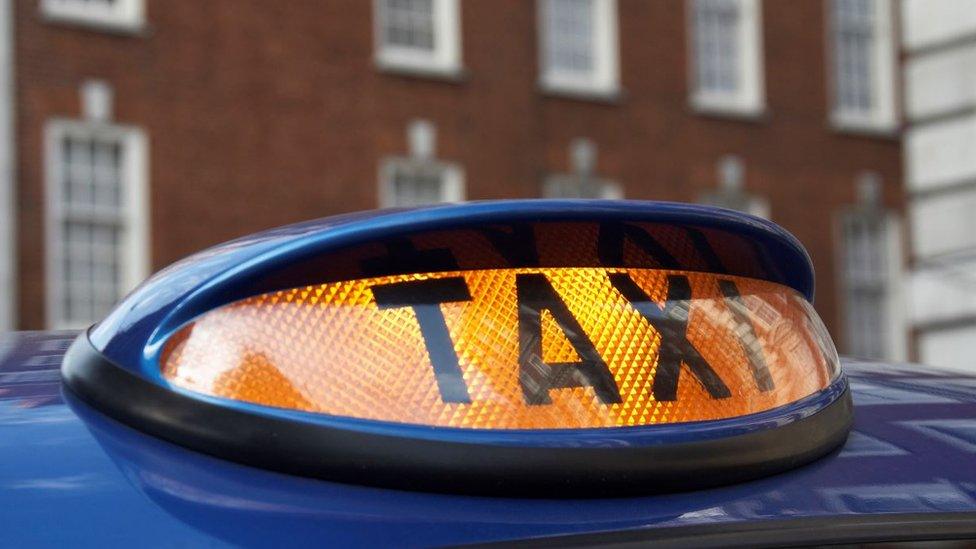Isle of Wight Council struggles with SEN school transport demand
- Published

On the Isle of Wight, 503 SEN pupils are eligible for school transport via taxi and minibus
A council's transport costs for children with special education needs (SEN) has gone up, despite fewer pupils being taken to school via the service.
Isle of Wight Council spent £3.6m to take 2,317 pupils to school in 2012 but this year paid £4.3m to transport 1,614 pupils.
The authority said it was already over budget this financial year due to increased demand for SEN transport.
Currently, 9.7% of school pupils (1,614) are eligible for the transport.
That includes 1,111 mainstream pupils using Southern Vectis school buses and 503 SEN pupils who travel by taxi and minibus.
In mainstream schools, the number of children eligible for council transport has fallen by 44% in the last 10 years, from 1,992 to 1,111. Costs have reduced from £2.9m to £1.9m.
This was due to the removal of catchment areas in 2015 and the opening of the Island Free School in Ventnor.
National challenge
Outside mainstream provision, over the same period, the number of SEN children needing transport has more than doubled - from 169 to 352 - increasing costs by £1.25m to £1.7m.
The council said pressures have come from a shortage of places at dedicated SEN schools - meaning pupils have to travel further - as well as a large number of Education, Health and Care Plans and the need for adapted vehicles.
It estimated transport could be needed for 461 SEN pupils by 2027 and costs could rise to £5.7m for all children by 2026.
Speaking at a children's education scrutiny committee earlier this month, council officers said they needed support from central government.
The authority is operating close to a statutory minimum of service, they said, adding it would be "impossible to solve problems" without statutory change from government.
The officers said they also needed help "reinforcing the fact" that, in most cases, it was parents' responsibility to take their children to school.
Stuart Ashley, the council's interim children services director, said it was a national challenge, adding that while he would be happy to provide more home-to-school transport but the authority does not have the money.

Follow BBC South on Facebook, external, Twitter, external, or Instagram, external. Send your story ideas to south.newsonline@bbc.co.uk, external.
Related topics
- Published11 September 2023

- Published11 August 2022

- Published2 March 2023
